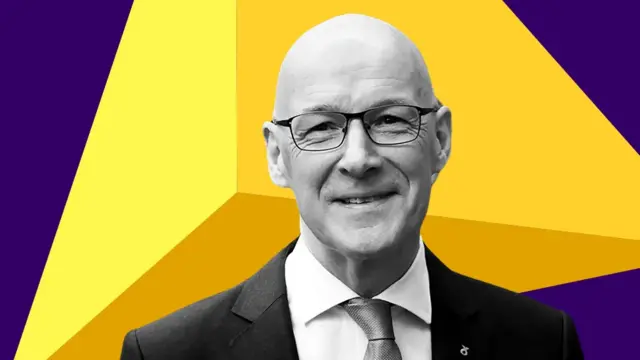'UK must follow Scotland's lead on income tax'published at 11:05 BST 30 June 2024
On income tax, Swinney reaffirms his call for the UK government to follow his party's more "progressive" tax structure.
The Scottish Parliament has some tax powers, including the ability to set income tax rates and bands (except for the starting threshold, currently at £12,570).
Scotland now has six income tax bands while the rest of the UK has only three.
The way the tax bands and rates are applied means those who pay income tax in Scotland who earn more than £28,867 pay more income tax than someone with the same earnings elsewhere in the UK, while those on the lower rungs of income tax pay around £20 less each year.
Swinney says "if the UK government doesn't change its stance on tax, Scotland is going to get its budget cut".
He claims that is a simple answer to the £18bn spending cuts which the next prime minister and chancellor will impose on Scotland.


